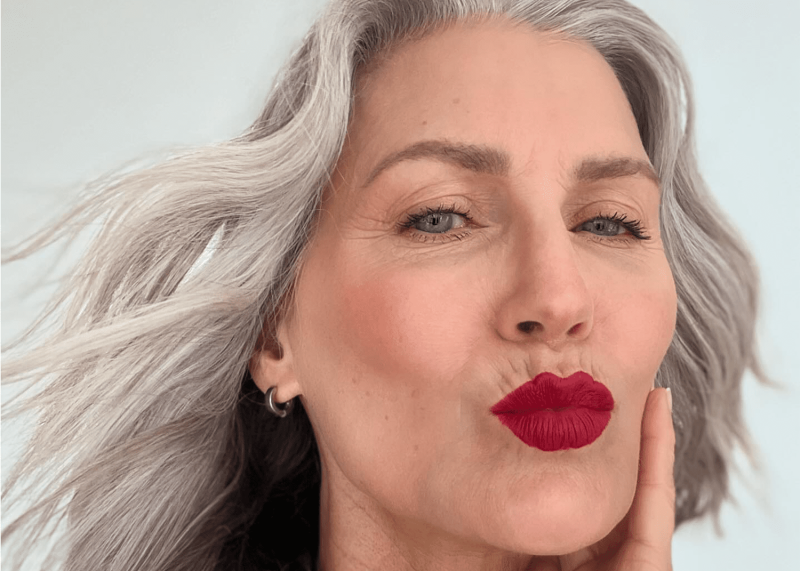
What to Avoid Final Thoughts
It’s that time again—the deep freeze between the holiday season and early spring is upon us. Constant exposure to the extreme cold outdoors and dehydrating heat indoors can take a toll on your skin. This is especially true for those with mature skin who have lost some of the resilience afforded by youth. So, we turned to the experts to create the ultimate winter skincare guide for mature skin. Below, they share a host of smart tips, from the importance of moisturizers to avoiding ingredients. Trust us, this guide will up your skincare game and keep skin looking its best throughout colder months.
How Winter Can Impact Skin
The first step in learning how to tweak your skincare for the winter is understanding why mature skin is more vulnerable to wintry conditions. According to dermatologist Dr. Dyvia Shokeen, aging causes a variety of changes in the skin that can make it less efficient at holding up against stressors.
First, there is thinning of the skin and diminishing elasticity. “The outer layer (also known as the epidermis) becomes thinner, making the skin more fragile,” Dr. Shokeen explains. “Collagen and elastin production also decreases, leading to sagging and wrinkles.” She also notes that as we get older, oil production starts to slow down, which can lead to dryness. “Your skin’s ability to heal itself also diminishes over time,” Dr. Shokeen adds. “It starts at 20-30 days in your 20s to nearly 90 days in your 50s and 60s.”
How to Identify Mature Skin
If you ask yourself, 'How do I know if I have mature skin'? London-based facialist Sophie Carbonari makes the answer simple with four common indicators.
- Fine lines and wrinkles: “Especially around the eyes, mouth, and forehead, can signal the natural aging process,” says Carbonari.
- Loss of firmness: “This is oftentimes noticeable along the jawline and cheeks,” she says.
- Thinning of the skin: According to Carbonari, this can result in “exposed blood vessels and increasing susceptibility to damage.”
- Dryness: This is a hallmark sign of mature skin, “as reduced oil production leads to a rougher texture.”
Winter Skincare Routine
When creating a skincare routine, pay extra attention to the essential steps and ingredients. Carbonari suggests a 6-step process for protecting mature skin in the winter months.
- Cleanse: “Start with a clean canvas. Cleansing the skin is the first step to ensure that all subsequent products can penetrate effectively,” she suggests. “Use a gentle, hydrating cleanser to avoid stripping the skin of essential moisture.”
- Toner (optional): Next, Carbonari recommends applying a toner. “A hydrating toner or essence preps the skin, replenishing lost moisture and improving absorption of active ingredients,” she explains.
- Serum: Once your skin is prepped, Carbonari suggests using a serum. “Hyaluronic acid serums [are great for] deep hydration and plumpness, peptide serums support collagen production and improve skin firmness, antioxidant serums (such as vitamin C), combat free radicals, brighten the skin, and retinol serums improve texture and reduce fine lines,” she says. Choose your targeted treatment depending on the specific needs of your skin.
- Moisturizer: “[Use a formula with] nourishing ingredients tailored for mature skin, such as ceramides, hyaluronic acid, peptides, or vegetal stem cells,” says Carbonari. “This step locks in the benefits of the serum and reinforces the skin’s barrier to prevent moisture loss.” Both experts agree this step is essential for mature skin.
- Face Oil (optional): For even extra hydration (especially during the harsh winter conditions), Carbonari recommends layering a lightweight face oil over your moisturizer. “Oils like rosehip or squalane add a protective layer and promote suppleness,” she says.
- SPF: The final step is to apply SPF during the day to fend off damage from UV exposure.
What to Avoid
While some products may be beneficial during warmer weather, they may not be as beneficial during cooler seasons. For Dr. Shokeen, that means limiting intense ingredients. “Harsh exfoliants such as high-strength AHAs and BHAs can strip the skin and cause irritation,” she says. “Opt for gentler exfoliation, such as lactic acid.” Similarly, she also recommends avoiding alcohol-based products and overuse of retinol as they can dry out the skin further.
Final Thoughts
Mature skin is especially vulnerable in winter due to a variety of factors. That being said, you can still protect your skin and keep it looking its best through a targeted, disciplined routine. The most important steps of them all? Applying serums and moisturizers to replenish hydration deep into the skin barrier. And, as always, don’t forget the SPF.


